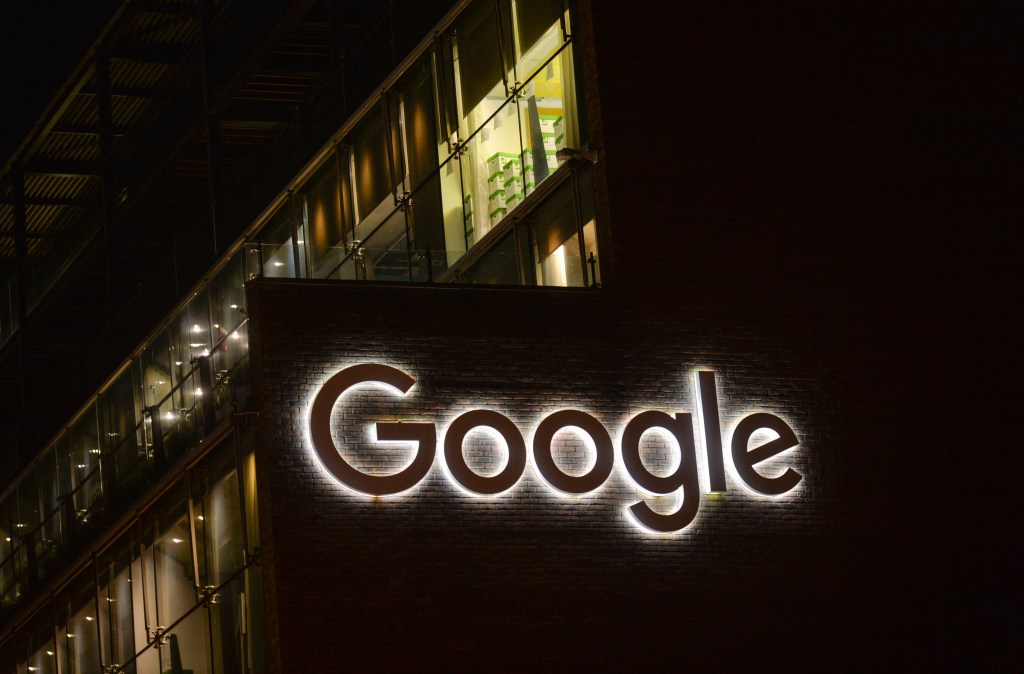A group of contractors working on Google products have won a second historic pay raise and will now be paid the company’s minimum standard wage of $15 an hour, according to a Monday announcement by the Alphabet Workers Union-CWA.
This victory comes after the union delivered a petition demanding that the contract workers be included in Google’s company-wide U.S. Wages and Benefits Standards to the company’s Mountain View, CA headquarters on Feb. 1. Over 1,000 Alphabet workers signed it.
Videos by VICE
Google released its Wages and Benefits Standards in 2019, with an expected compliance date of Jan. 1, 2020. “All members of Google’s provisioned extended workforce, working in the United States, should be paid $15/hour or more,” it states. It also mandates that, although independent contractors and workers under a collective bargaining agreement are excluded from company benefits, that “the wages portion of this policy must be followed without adjustment.”
“We wanted to bring to your attention that some of our members (and raters more broadly) are presently excluded from Google’s stated values and extended workforce standards,” the petition reads. “Many are presently being paid poverty wages without any healthcare, family leave, or PTO benefits. We’re all aware that Alphabet’s main source of revenue and much of its future remains Search. We believe that the integrity and quality of Search ultimately depends on the unseen labor of these workers.”
The workers are mostly employed at Appen-RaterLabs, an AI training vendor whose only known client is Google, and they’re responsible for training the company’s search engine by testing and evaluating its algorithm’s results. The AWU-CWA estimates that the new raise will affect up to 3,000 workers and result in “millions in collective salary increases.”
“It took months of organizing for workers to secure the minimum pay that Google has set as a standard for its ‘extended workforce,’” said Michelle Curtis, a Google rater and union member. “It is now time for Appen and Google to ensure every rater can take a sick day and have access to basic health insurance.”
Google did not respond to a request for comment.
The AWU-CWA won its first pay-raise victory in early January, when the company announced it would pay contract raters between $14 or $14.50 an hour, depending on their level of experience. Prior to that announcement, raters were being paid as little as $10 an hour, the AWU-CWA said.
Although the AWU-CWA is not formally recognized by the National Labor Relations Board, and therefore does not have the right to engage in collective bargaining on behalf of all workers at Alphabet, its members have been quite active. After winning their first salary victory in January, workers have held multiple rallies at company offices from Mountain View to New York City in response to the company’s massive layoffs.
YouTube Music workers in Austin, Texas—who are also subcontractors of Google—began the company’s first-ever planned strike after a return-to-work policy that “threatens the livelihoods of workers” who don’t live nearby, one press release stated. Workers have undertaken work stoppages in support of Black Lives Matter and over the company’s sexual harassment scandals before.
Senator Bernie Sanders and Texas Representative Greg Casar sent a letter to Google’s CEO Sundar Pichai in support of the YouTube Music workers’ strike.
“Mr. Pichai: your $60 billion in profits last year enables you to not only treat your workers fairly, but also recognize the invaluable contributions YouTube Music workers bring to your company and our community,” they wrote in the letter. “Our request to you is simple: Ensure that all Google workers, including YouTube Music workers, are able to freely exercise their right to join a union as guaranteed by federal law.”
The union’s success in raising pay for contractors that train AI highlights a common issue with machine-learning systems: While they may appear convincingly autonomous, they are typically trained and fine-tuned by humans who are often underpaid.




